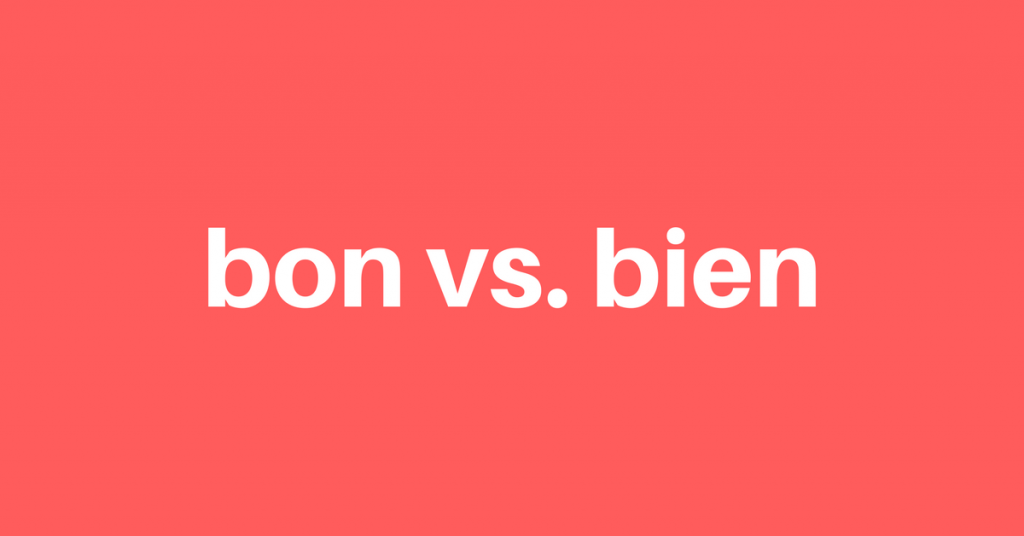French Grammar: Bon vs. Bien Posted by Elizabeth Schmermund on Jul 11, 2016 in Grammar
“Are you feeling good?” “Are you feeling well?” Which of these questions is grammatically correct in English?
Most likely, if you recite these questions aloud, the first option (“Are you feeling good?”) sounds a bit off, even if you don’t know exactly why. And you would be right if you picked the second option (“Are you feeling well?”) as the grammatically correct choice.

That’s because “good” is an adjective that modifies nouns. “Well,” however, is an adverb that modifies verbs. Thus, if you are performing any kind of action (like “doing,” but even, in this case, “feeling”), you must use the adverb “well.” Although this is somewhat nit-picky, if somehow asks: “How are you?” The correct response would not be “I’m good,” but rather “I’m well.”
French also uses the equivalents of “good” and “well,” and just like in English, their correct usage can be difficult to master. In French, bon is usually an adjective, making it the equivalent of “good.” Bien, on the other hand, is usually an adverb. That’s why you would say, for example, “Ça va bien?” (“Are you doing well?) instead of “Ça va bon?” (“Are you doing good?”)
Things can get somewhat trickier when you talk about observations using the senses. For example, if you want to say “You smell really good” (notice here, in English, the use of good as an adjective modifying the pronoun “you”), you would say tu sens très bon. In this example, the English and the French versions of the sentence align. This is because the word bon/good is modifying is actually a noun, not a verb. (This is called an adverbial adjective, meaning that it is an adjective that works like an adverb.)
But notice how I said bon is usually an adjective and bien is usually an adverb.
Bon can also be a noun, as in le bon, which can mean a voucher or coupon. Bien can also be used as a noun, as in les biens, which means “goods.”
Also, keep in mind that bien should also be used with so-called “state-of-being” verbs like être. Thus, you would say: Il est bien comme prof (“He’s a good professor”). However, if you arrange your sentence in a different way, Il est bon prof, you need to use bon because it is modifying the noun prof or professeur. A good way to keep track of this is by asking yourself if you want to place bon or bien directly before a noun. If the answer to this question is yes, then you should use bon. If it’s no, use bien.
Bonne continuation!

Build vocabulary, practice pronunciation, and more with Transparent Language Online. Available anytime, anywhere, on any device.




Comments:
Randolph King:
The answer to ‘How are you?’ in English is more complex than that. Since to be is a linking verb, both answers are correct, but have different meanings.
To use the adverb, well, you are stating something about your current wellness. And the noun modifies you, is a statement more of a state of affairs. I know, it’s rather nit-picky. I don’t make them. 🙂
Elizabeth Schmermund:
@Randolph King Thank you for this really helpful clarification, Randolph!
Imtiaz Lutful Baset:
The write-up is really a great helpful to a French Language learner like me. Thanks indeed! I wish to get such stuff on regular basis. Regards & thanks.
Elizabeth Schmermund:
@Imtiaz Lutful Baset Thank you, Imtiaz!